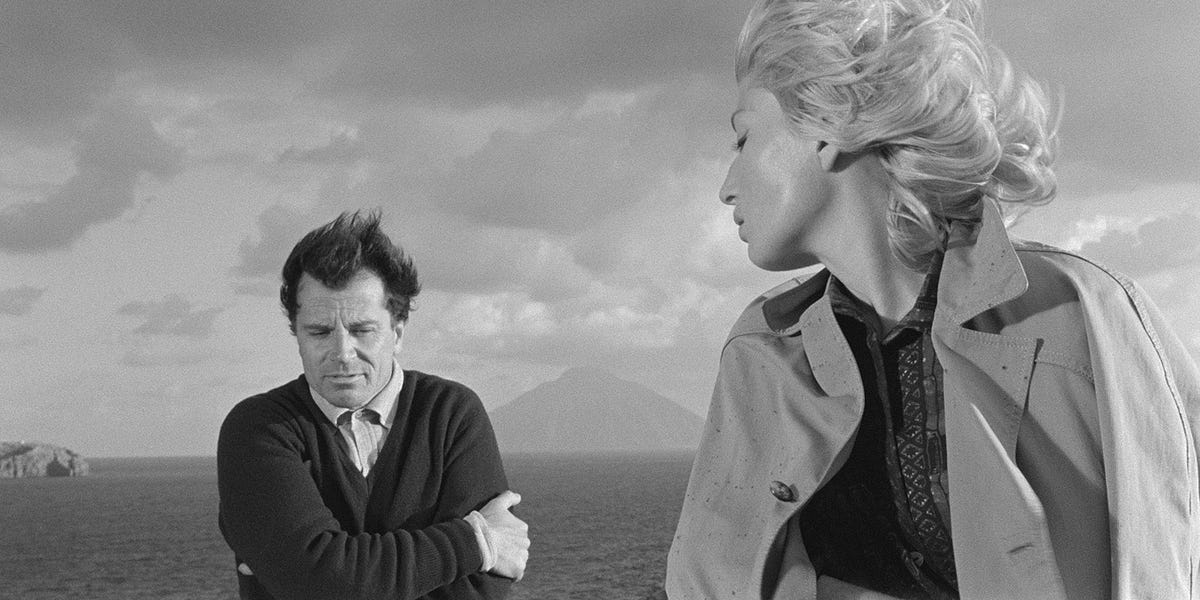masai-land-rover.com – Michelangelo Antonioni’s L’Avventura (1960) is a cinematic masterpiece that continues to captivate and confound audiences decades after its release. This enigmatic film, set against the stunning backdrop of the Mediterranean islands, delves into the depths of human relationships, existential despair, and the elusive nature of truth.
A Disappearance and Its Echoes
The film revolves around a group of friends who embark on a boating trip to the Aeolian Islands. However, the narrative takes an unexpected turn when Anna, a young woman in the group, mysteriously vanishes. The search for Anna becomes a catalyst for exploring the complex dynamics between the remaining characters, particularly Sandro, Anna’s lover, and Claudia, her best friend.
As the search progresses, the film shifts its focus from the physical act of searching to the psychological and emotional impact of Anna’s absence. The characters become increasingly isolated and introspective, grappling with their own insecurities and the void left by Anna’s disappearance.
A Visual and Auditory Odyssey
Antonioni’s masterful direction elevates L’Avventura to a visually stunning and emotionally resonant experience. The film’s long takes, precise camera movements, and evocative use of light and shadow create a sense of both beauty and desolation. The vast landscapes of the islands serve as a stark contrast to the characters’ inner turmoil, emphasizing their feelings of alienation and insignificance.
The film’s sound design is equally impressive, with a minimalist approach that heightens the sense of isolation and dread. The absence of a traditional score allows the sounds of nature, such as the wind and the waves, to take center stage, underscoring the characters’ connection to the natural world and their detachment from one another.
Existential Themes and Ambiguity
L’Avventura is a profoundly existential film that explores the fundamental questions of human existence. The characters’ search for Anna becomes a metaphor for their own search for meaning and purpose in life. The film suggests that true meaning may be elusive, and that our attempts to grasp it can lead to frustration and despair.
Antonioni’s deliberate ambiguity adds to the film’s enigmatic quality. The exact circumstances of Anna’s disappearance remain unclear, leaving the audience to draw their own conclusions. This ambiguity reflects the uncertainty of life itself, and the impossibility of knowing the true nature of reality.
A Controversial Masterpiece
Upon its release, L’Avventura was met with both critical acclaim and controversy. Some critics praised the film’s innovative approach to storytelling and its exploration of complex themes. However, others criticized its slow pace, lack of a clear narrative, and ambiguous ending.
Despite the initial controversy, L’Avventura has since been recognized as a landmark film that has had a significant impact on cinema. Its influence can be seen in the work of directors such as Ingmar Bergman, Alain Resnais, and Wim Wenders.
A Timeless Exploration of the Human Condition
L’Avventura remains a powerful and thought-provoking film that continues to resonate with audiences today. Its exploration of love, loss, and the human condition is as relevant now as it was in 1960. By inviting viewers to contemplate the mysteries of existence, the film challenges us to confront our own mortality and the fragility of human relationships.
